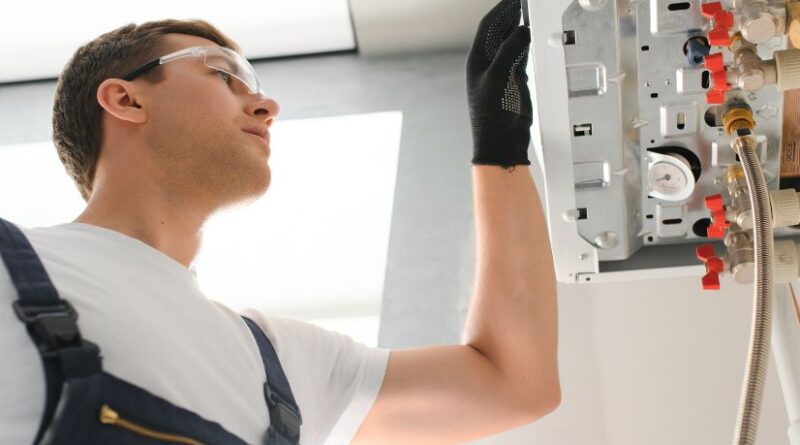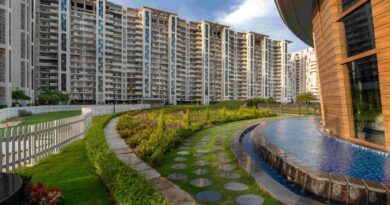Essential Plumbing Advice for Homeowners: Expert Tips and Tricks
Unlock the secrets to hassle-free home plumbing! Plumbing issues can be a major headache for homeowners, but with the right knowledge and tools, many problems can be prevented or quickly resolved. In this guide, we’ll provide you with essential advice to maintain your plumbing system, tackle common issues, and know when it’s time to call a professional. From regular maintenance to emergency fixes, this guide covers everything you need to keep your plumbing system running smoothly.
Understanding Your Home Plumbing System
The Basics Every homeowner should have a basic understanding of how their plumbing system works. At its core, a typical home plumbing system includes pipes that carry fresh water into your home and pipes that remove wastewater. The water supply system brings in clean water for drinking, cooking, and cleaning, while the drainage system disposes of wastewater.
Key Components Key components of a home plumbing system include pipes, fittings, fixtures, and appliances. Pipes are the conduits that carry water throughout your home, fittings connect different sections of pipe, fixtures such as sinks and toilets allow you to access water, and appliances like water heaters and dishwashers use water for specific purposes.
Water Supply and Drainage Understanding how water enters and leaves your home is crucial. Freshwater enters your home through the main water supply line, which is usually connected to a municipal water system or a private well. Wastewater leaves your home through the drainage system, which connects to a municipal sewer line or a septic tank.
Regular Maintenance Tips
Preventative Measures Routine inspections are key to preventing major plumbing problems. Check for leaks, corrosion, and signs of wear and tear on pipes and fixtures. Regularly inspect your water heater, and consider draining it once a year to remove sediment buildup.
Cleaning Drains and Gutters Keep your drains clear to prevent clogs. Avoid pouring grease or coffee grounds down the drain, and use a drain strainer to catch hair and other debris. Regularly clean your gutters to prevent water from backing up and causing leaks.
Winterizing Your Plumbing Winter can be harsh on your plumbing system. To protect your pipes from freezing, insulate exposed pipes and keep your home heated. Let faucets drip slightly during extremely cold weather to keep water moving and prevent freezing.
Common Plumbing Problems and Solutions
Clogged Drains Clogged drains are a common issue in many households. They can be caused by a buildup of hair, soap, grease, or other debris. To prevent clogs, avoid pouring fats or oils down the drain and use a drain cover to catch debris. If a clog does occur, try using a plunger or a drain snake to clear it.
Leaky Faucets and Pipes Leaky faucets and pipes can waste a significant amount of water and increase your utility bills. Common causes include worn-out washers, loose connections, or corrosion. To fix a leaky faucet, replace the washer or cartridge. For leaky pipes, tighten the connections or replace the affected section.
Running Toilets A running toilet can waste a lot of water. The most common cause is a faulty flapper valve that doesn’t seal properly. Replacing the flapper valve is a simple fix that can save you money on your water bill. Other potential causes include a malfunctioning fill valve or a float that’s set too high.
Low Water Pressure Low water pressure can be caused by a variety of issues, including clogged pipes, a failing pressure regulator, or a problem with the municipal water supply. To diagnose the issue, check your faucets and showerheads for mineral buildup, inspect your pressure regulator, and contact your water provider if necessary.
DIY Plumbing Projects
Tools Every Homeowner Should Have Having the right tools can make plumbing repairs much easier. Essential tools include a plunger, pipe wrench, adjustable wrench, plumber’s tape, and a drain snake. Additionally, having a basic plumbing kit with washers, gaskets, and o-rings can be very handy.
Fixing a Dripping Faucet A dripping faucet is a common annoyance that can usually be fixed with a simple DIY repair. Start by turning off the water supply to the faucet. Then, disassemble the faucet to access the washer or cartridge. Replace the worn-out part and reassemble the faucet.
Unclogging a Toilet A clogged toilet is a common issue that can often be resolved with a plunger. If the plunger doesn’t work, try using a toilet auger to break up the clog. Avoid using chemical drain cleaners, as they can damage your pipes and are harmful to the environment.
Installing a New Showerhead Installing a new showerhead is a quick and easy project that can improve your shower experience. Start by unscrewing the old showerhead and cleaning the threads on the shower arm. Wrap plumber’s tape around the threads and screw on the new showerhead.
When to Call a Professional
Assessing the Situation While many plumbing issues can be handled with DIY solutions, some situations require professional help. Major leaks, sewer line problems, and issues with your water heater should be addressed by a licensed plumber.
Choosing a Reputable Plumber When choosing a plumber, look for someone who is licensed and insured. Check online reviews and ask for recommendations from friends and family. Get multiple quotes to ensure you’re getting a fair price.
Understanding Costs Plumbing costs can vary widely depending on the complexity of the job and your location. Be sure to get a written estimate before work begins, and ask about any additional fees that may apply.
Plumbing Safety Tips
Working Safely with Tools and Materials Always prioritize safety when working on plumbing projects. Wear protective gear such as gloves and goggles, and make sure you know how to use your tools properly. If you’re unsure about any aspect of a project, it’s best to consult a professional.
Handling Plumbing Chemicals If you need to use chemicals to clear a clog, handle them with care. Follow the manufacturer’s instructions, and store chemicals out of reach of children and pets.
Preventing Water Damage Water damage can be costly and difficult to repair. To prevent it, regularly inspect your plumbing system for leaks and address any issues promptly. Install water alarms near appliances and in areas prone to leaks, and know where your main water shutoff valve is located.
Environmental Considerations
Water Conservation Tips Conserving water is good for the environment and can lower your utility bills. Simple changes like fixing leaks promptly, installing low-flow fixtures, and turning off the tap while brushing your teeth can make a big difference.
Eco-friendly Plumbing Options Consider upgrading to eco-friendly plumbing options such as tankless water heaters, low-flow toilets, and water-efficient appliances. These options not only conserve water but can also save you money in the long run.
Reducing Water Waste Be mindful of your water usage and look for ways to reduce waste. For example, only run your dishwasher and washing machine with full loads, and use a broom instead of a hose to clean driveways and sidewalks.
Conclusion
Maintaining your plumbing system doesn’t have to be a daunting task. With regular inspections, preventative measures, and a willingness to tackle minor repairs, you can keep your plumbing in top shape. Remember, while DIY solutions can handle many issues, don’t hesitate to call a professional for more complex problems. Empower yourself with the knowledge and tools to manage your home’s plumbing, and enjoy the peace of mind that comes with a well-maintained system.
FAQs
Q: How often should I inspect my plumbing system?
A: It’s recommended to inspect your plumbing system at least twice a year, in spring and fall, to catch any potential issues early.
Q: What are the signs of a hidden leak?
A: Look for unexplained increases in your water bill, damp spots on walls or ceilings, and the sound of running water when all fixtures are turned off.
Q: Can I use chemical drain cleaners regularly?
A: It’s best to avoid regular use of chemical drain cleaners as they can damage your pipes over time. Opt for mechanical methods or natural solutions instead.
Q: How can I prevent my pipes from freezing in winter?
A: Insulate your pipes, keep cabinet doors open to allow warm air to circulate, and let faucets drip slightly during extremely cold weather.
Q: What should I do if my toilet is constantly running?
A: Check the flapper valve, float, and fill tube for issues. Replacing the flapper valve is often a simple and effective fix.
Q: Is it worth installing low-flow fixtures?
A: Yes, low-flow fixtures can significantly reduce your water usage without compromising performance, leading to lower utility bills and environmental benefits.
Q: How do I choose a good plumber?
A: Look for licensed and insured plumbers with good reviews and recommendations. Get multiple quotes and ensure clear communication about the scope of work and costs.
Q: What are the benefits of a tankless water heater?
A: Tankless water heaters provide hot water on demand, are more energy-efficient, and take up less space compared to traditional tank water heaters.



